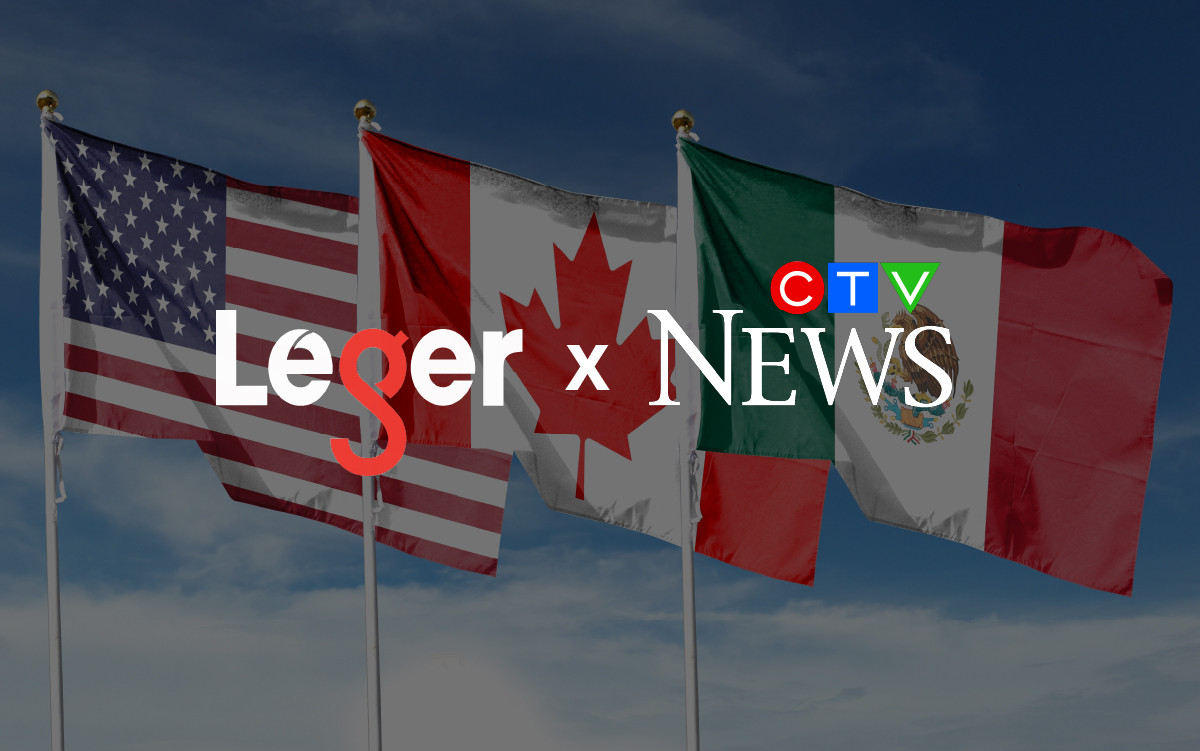As North America grapples with shifting trade dynamics, new data from Leger shows Canadians and Mexicans are far more worried about tariffs than their U.S. neighbours.
Some of the key highlights of our survey…
Trump’s Tariffs Viewed as a Major Concern in Canada and Mexico
Tariffs imposed by President Donald Trump are seen as a top issue in both Canada and Mexico. In Canada, more than a third of respondents (38%) identify Trump’s tariffs as the most important issue facing the country. In Mexico, 18% say the same, making it the third most important issue after crime and safety (31%) and drug cartels and organized crime (19%). In contrast, only 1% of Americans consider unfair trade practices by Canada and Mexico to be the most pressing issue for the U.S.
Furthermore, A strong majority of Canadians (87%) and Mexicans (84%) believe tariffs on exports to the U.S. will negatively affect their countries’ economies. In the United States, 52% agree the tariffs will have a negative impact, while 29% believe they will have a positive effect.
Trump Viewed Unfavorably by Most Canadians and Mexicans
81% of Canadians and 76% of Mexicans have an unfavourable opinion of Donald Trump. Public opinion is more divided in the United States: 48% of Americans view Trump unfavourably, while 41% hold a favourable opinion.
Mexico Most Supportive of Trade Agreement
Support for a future free trade agreement between Canada, the United States, and Mexico is highest among Mexicans, where an overwhelming 76% of respondents are in favour, significantly higher than in Canada (52%) and the United States (53%).
Frustration Aimed Primarily at Trump, Not the U.S.
When asked about the source of their frustration toward the United States, a clear majority of Canadians (64%) and Mexicans (59%) say it is directed more toward President Donald Trump specifically, rather than the U.S. as a country. However, despite this distinction, 43% of Canadians and 35% of Mexicans still consider the United States to be an enemy country.
Methodology
This web survey on the economy was conducted from March 28 to 30, 2025, with 1,628 Canadians and 1,013 U.S. residents, and from March 26 to 31, 2025, with 1,003 Mexican residents, 18 years of age or older, randomly recruited from LEO’s online panel.
A margin of error cannot be associated with a non-probability sample in a panel survey. For comparison purposes, a probability sample of this size yields a margin of error no greater than ±2.43%, (19 times out of 20) for the Canadian sample, ±3.08%, (19 times out of 20) for the American sample, and ±3.09%, (19 times out of 20) for the Mexican sample.




